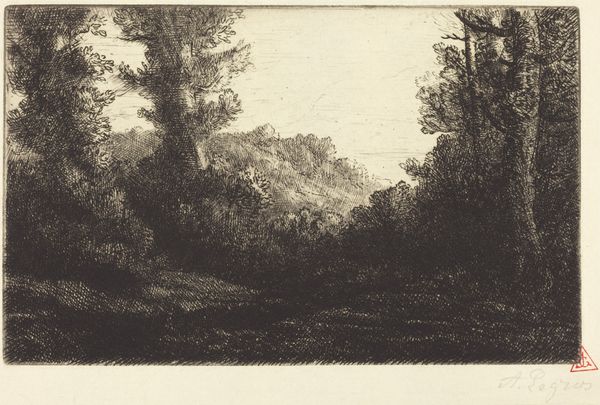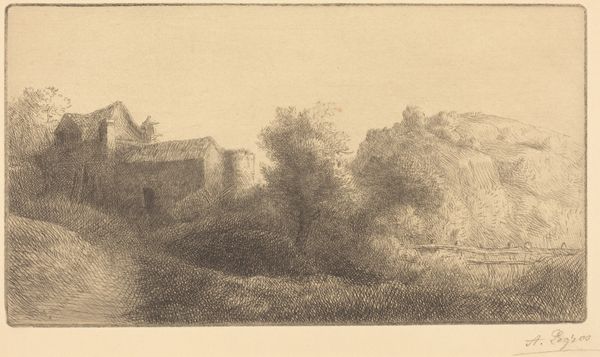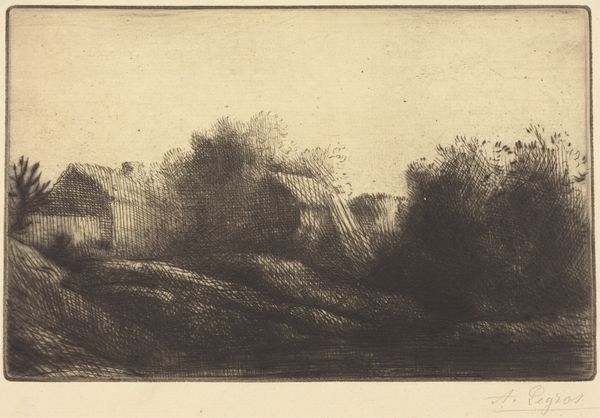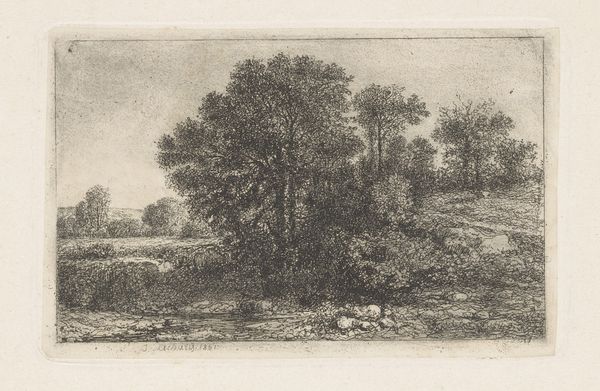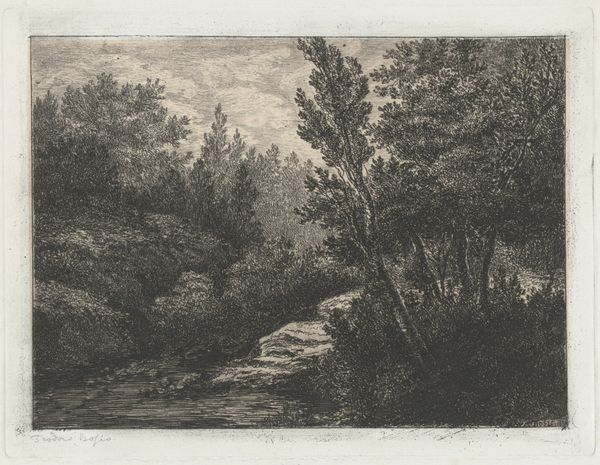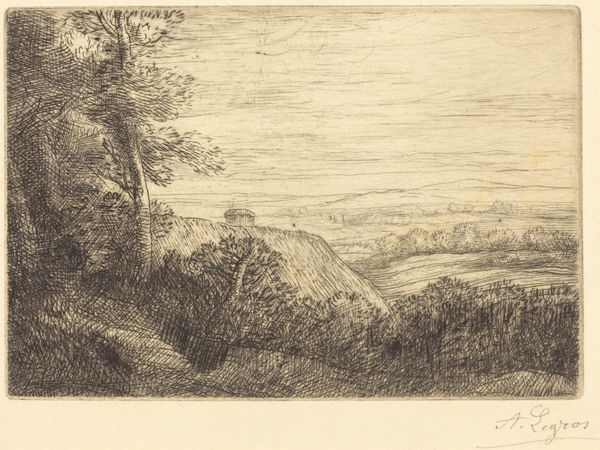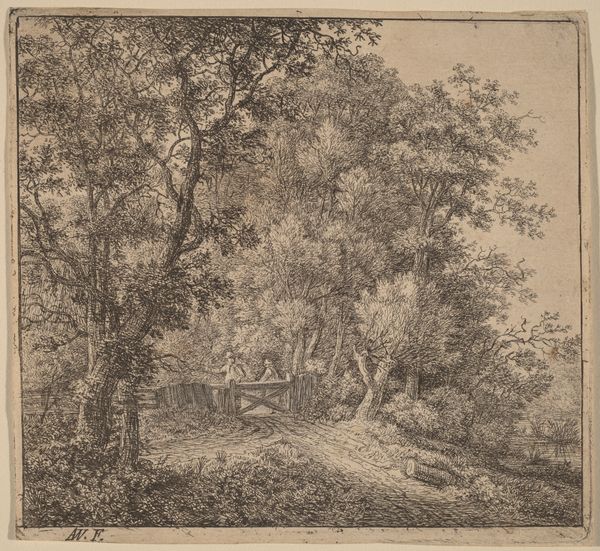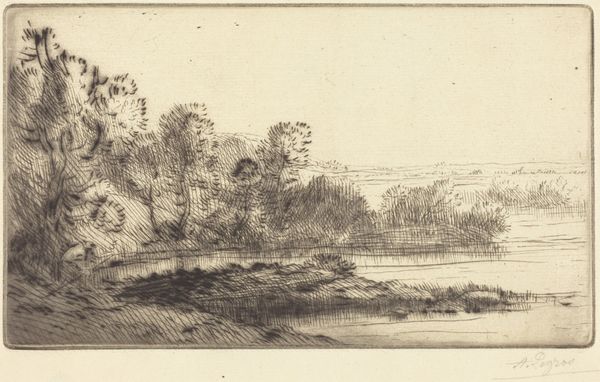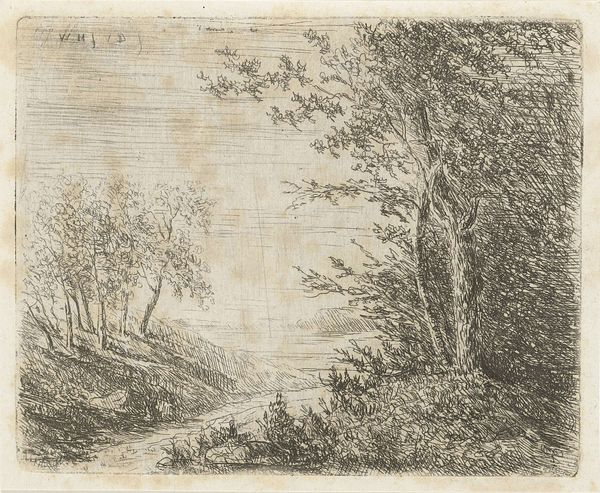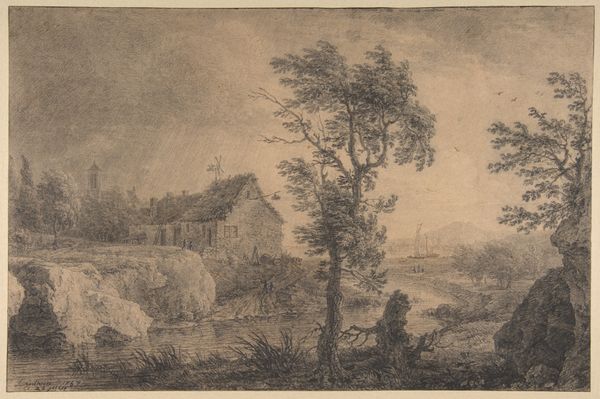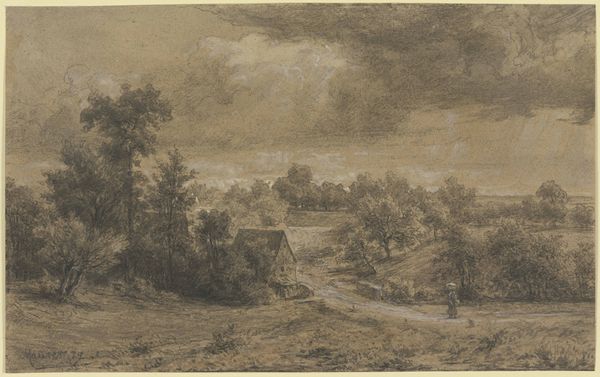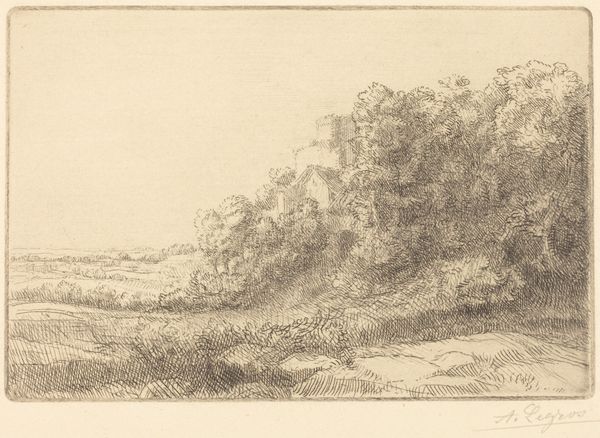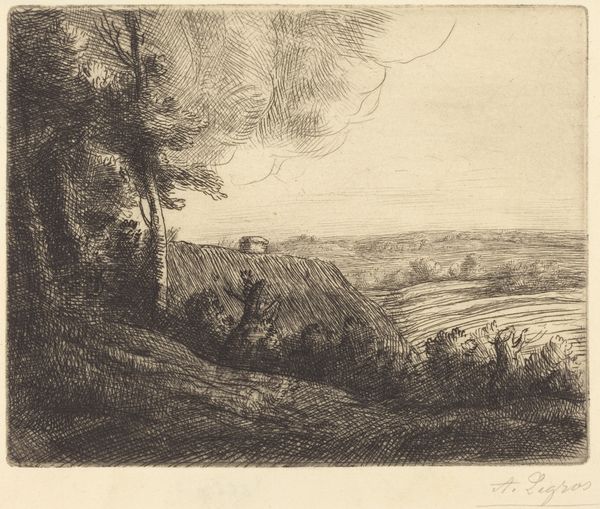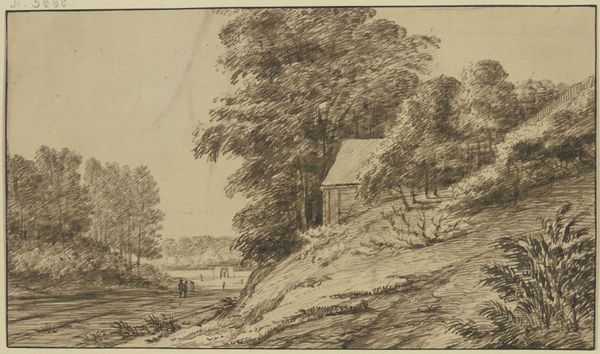
print, etching
# print
#
etching
#
landscape
#
pencil drawing
#
realism
Copyright: National Gallery of Art: CC0 1.0
Curator: There's an almost unsettling quiet in Alphonse Legros' "View of a Farm, 2nd plate." The print work is so dense, it almost feels overgrown. Editor: I agree. It gives me a sensation of being deeply secluded, almost hidden, maybe with a sense of lurking? Curator: Exactly. Legros worked in the Realist tradition. This etching shows us, I think, the everyday experiences of rural life and a very intentional naturalism. I’d even argue that the "unsettling" nature we sense is perhaps more about the shift from idealized pastoral landscapes. Editor: Yes, because if it had depicted perfectly manicured fields and idealized peasants, that certainly would speak volumes, no? It is about how these images enter into cultural memory and remind us of this idea, for me at least, about the way realism serves to expose societal myths. The shadow across the lower register feels heavier, thicker than necessary. Curator: And the texture of the foliage is really pronounced thanks to the etching technique. Every little line is creating depth and a certain energy in a way no photograph ever could. You notice how the composition is almost swallowed by this intensity. Editor: How this etching differs from the visual shorthand or grand scale of earlier historical painting. In many ways it captures a modern relationship between art and subject, not a romantic one. Does that read politically for you at all? Curator: I’d say yes. While subtle, I’m reminded that many Realist painters used their art as a form of social commentary, addressing poverty and labor in the 19th century, though the direct politics aren’t entirely obvious in this landscape scene alone. Editor: In that sense, it does embody a cultural perspective shifting towards portraying things as they were actually experienced, perhaps as part of this larger shift away from older Romanticized notions about history and pastoral experience. It reminds the viewer of what they’re looking at in relation to themselves. Curator: Exactly, what does one expect of landscapes like these, of images of farms, or how one approaches a visual understanding of a common rural theme that one does or doesn’t participate in? It speaks so softly. It resonates long after you’ve moved on.
Comments
No comments
Be the first to comment and join the conversation on the ultimate creative platform.
